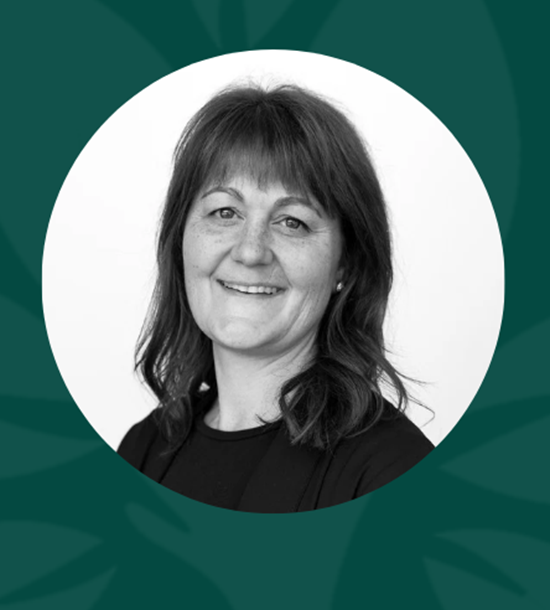Sonja is an employee at Innovatum Science Park and through her employer, she participates as a member of Submariner Network. She is a biologist with a marine and entrepreneurial background. Over the past 3 years she has worked in different roles at Innovatum Science Park in Sweden. Both as a project manager in development projects but also as a business coach in the startup incubation program.
The level of development of applied R&D activities for tech transfer varies
Sonja started by saying that in Sweden at the level of large companies, applied R&D activities for tech transfer are much more developed because there tends to be infrastructure, post-docs, and take-in of research ideas. However, at the level of SMEs and start-ups, she sees many challenges.
Around Innovatum’s clusters and companies, she sees a collaborative environment growing within the blue bioeconomy. Sweden is quite successful when it comes to bringing ideas out and putting them into commercial applications. But she acknowledges that there's still a lot to do because it is quite a new area, especially when it comes to biotech.
Sonja mentioned Portugal as an example of a country with a very developed biotech sector and with many commercial opportunities being opened. In Sonja’s view, we are just at the beginning of our journey, but because we're working already on those collaborative platforms, we will likely have a better chance to see those transfers coming out.
Improved communication between researchers and industry can contribute to R&D
Many actors and tech transfers are already happening within the food system or food tech. But when it comes to seafood, Sonja believes we must continue to put in more effort.
In Sonja’s perspective, it is not only about tech. It is also about getting the actual consumers to understand and adopt more seafood diets. For example, it needs influencers to be involved, who are getting chefs and other actors involved. She also sees that Sweden has low volume primary production of blue biomass and this will need to increase for industry to see commercial benefits and be willing to participate in development work.
Moreover, in Sonja’s view, the researchers must know about the problems that they could be contributing to and solving. Sonja believes the key components are communication, networking, creating collaborative channels and events between industry and research, and SME and research. At Innovatum, Sonja and her colleagues often break this down to a very simple level of creating events and forums that can contribute to that.
We need more test plants, both on land and in the ocean
"There is a need for pilot plants to invest in equipment, specialization, and retrofitting because it's a lot of processing technology that infrastructure-wise is too much for small companies to invest in themselves”, Sonja pointed out.
Talking about seafood, Sonja gives an example of the Swedish research agency, the Research Institutes of Sweden RISE, which has a test kitchen. However, Sonja acknowledges that it is not fully developed for all the needs of companies wanting to industrialize and scale up. Hence, Sonja believes we need more test plants, both on land and in ocean environments testing different innovations and different scales (e.g. pilots).
Industrial symbiosis and circular business models are crucial for bioeconomy development
Sonja starts by saying that from a regional perspective, SMEs are struggling with side streams, and this needs research. Sonja highlights that we need information about which applications are commercially viable. Sonja adds that there is a lot of circular economy, side streams and marine substances to be used in secondary and tertiary applications.
Sonja reveals that there are large companies already operating that have side streams that could be something for a new company, for example, wastewater. Sonja mentions an example from a fish processing plant whose wastewater goes into another facility where it's treated with fermentation and becomes a liquid-based fertilizer. That is a brand-new company that has started recently. Sonja thinks we need to look at industrial symbiosis that's where the big companies can help as well as circular business models.
Investments in infrastructure are crucial for scaling up
The Swedish sector focuses on biotech and food - seafood. In biotech, there are also a few actors in microalgae. Sonja explains that there are very different financing needs. In the food sector, actors need for instance 1 million euros. In micro-algae, actors need way more money to bring it to the next level to scale up. Hence, there are very different scales of investment needed and most of them are in fact in infrastructure according to Sonja.
Biotech has different types of financing for different activities compared to the primary production or processing of food. But for both, the investor community is often concerned about the risk. Sonja concludes that the most important task for all the organizations working in the blue bioeconomy is to both educate investor communities (about this type of investment and sustainability) and how we can de-risk it.
Processing times are too long for applications
In Sweden, companies have limited access to bank loans and government capital. There are financing options for SMEs available through the Swedish Board of Agriculture and the Swedish Innovation Agency, but it is limited in scope and application approval processes can take a very long time according to Sonja. This includes EU funding calls which are often complex and require support when writing and administering them.
In Sonja‘s view, another issue is that financing criteria can be very different depending on the financer and the level of financing. It can be a challenge to find the right match for a startup or scale up. Sonja thus suggests it would be very useful to have one platform for all of that and to have a more standardised way for finding information and applying for financing.
